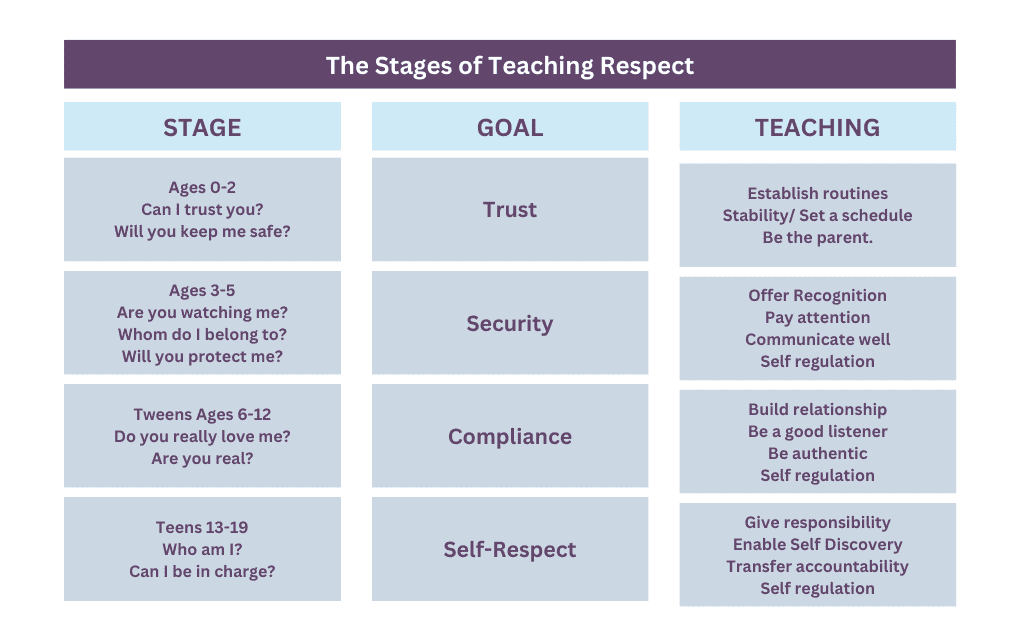9 Ways to Help Your Defiant and Disrespectful Child: The Magic of Relationships
Teaching respect to a neurotypical child through threats and force creates a defiant and disrespectful child. Teaching respect is one of the most important jobs a parent has. It’s also one of the most difficult. Many parents try to teach respectful behavior by using threats or force, but this often backfires and results in more disrespect, defiant behavior, and power struggles. The key to teaching respect is through relationships. Having a strong, honest relationship with your child will help them learn to respect you and others. In this blog post, we will discuss the nine keys to teaching respect through relationships!
What is respect?
To respect someone means to accept them as they are, no matter how different they are from you or how strongly you disagree with their ideas. Respect in relationships is the key to trust, safety, and contentment. Respecting other people is not a given, but it can be taught.
The stages of respect through child development
The teen years are the result of everything you and your child have accomplished up to this point. If there are problems in the teen years, it’s likely that things started to go wrong years before. Disrespect comes from being disappointed, not because a teen didn’t get what they wanted, but because they didn’t get what their heart needed with understanding and respect. Our kids need us to be people they can look up to and trust.
There are no guarantees when it comes to raising kids. In the end, they make their own decisions, but your kids will always learn from what you do as well as what you say. Be a role model for your child and teach your child, consistently.
Being an effective parent doesn’t mean your children are perfect, either. It means that you are doing everything you can to help and teach your child to grow up emotionally healthy, well-adjusted, and independent.
Children need different things to learn at different ages. The stages of development and what is needed at each age are listed below.

Make an authentic connection and let your teen become their own person
Parents in the United States think they have to surrender their children to peer groups once they grow from early childhood to adolescence. That is just untrue. When you connect with. your child in a regular and sincere way, that matters to them and helps give authentic positive attention no matter the child’s age and prevents behavioral issues. Connect with them in ways that matter to them, and they will feel heard and seen as they are growing and learning who they are.
Teens will not admit it, but they need you more now than ever. They need you to be there for more than soccer practice and pick them up at a friend’s house. They need parents to guide them, coach them, and love them through their mistakes. That means loving them through when making snide comments, bad manners, and when acting disrespectfully in different situations.
Parents model the behavior they expect
Children respect parents who respect themselves. If you want your child to be respectful, you must model that behavior yourself. This means being respectful of your child’s feelings and opinions, even when they differ from your own. It also means respecting their personal space and belongings. This establishes a healthy parent-child relationship. Young adults learn more from what we do than what we say. Your own actions impact your child’s actions.
Give self-respect by giving responsibility
Adolescents need to know that you respect them enough to give them responsibility. This could be simple things like letting them help with dinner or taking care of the family pet. As they prove themselves responsible, you can then give them more responsibility. This will help them build self-respect and respect for others. It is also a very natural way to build self-esteem as they become more capable.
Be real, authentic, and consistent
In order to respect someone, they must be worthy of respect. This means being genuine and authentic with your child. Don’t try to fake it or put on a show. Children can see through that. Instead, be honest and open with them. Share your feelings and experiences with them. This will help them see you as a real person and respect you more.
Listen with your ears, body language, and responses
In order to respect someone, you must first listen to them. This means really listening, with your ears, body language, and responses. Don’t just hear the words they are saying, but also try to understand the feelings behind them. This will help you respond in a way that shows respect.

Remain calm and turn a negative into a positive
Whether your child is refusing requests to do something, being rude to others, or being destructive to property, it is often a power struggle. How you handle a power struggle will be crucial. If you lose your temper, you will only escalate the situation. Instead, remain calm and try to turn the situation into a positive one. For example, if your child is refusing to do their homework, try asking them to help you with something instead. This will show respect for their feelings and needs while still getting them to do what you need them to do.
Have clear expectations, clear boundaries, and always be consistent
When I teach teachers how to improve their classroom management skills, I always tell them that children are not mind readers and that you must always communicate your expectations and boundaries BEFORE an activity.
Before anything I do with my kids, I go through the following:
- Set the expectation.
- Explain the consequence.
- Follow through
I give them one warning to fix their behavior then the consequence will stand.
Let me give you an example. My daughters were constantly wrestling and picking each other up. They were in elementary school, and yes, they were kids, but that is not acceptable behavior in a store like Pier 1 Imports. Before we went in:
Me: “Okay, ladies, we are going into the store with breakables. How do you think we should behave when we get in there?”
Their responses were, “Not to touch each other and pick things up or each other up. Keep our hands to ourselves.”
Me: “Yes, I need to exchange something really quick so I expect some self-control for 10 minutes. If you can not do this, we will not go to ________ for lunch. We will go home. It is your choice.”
Did they go into the store? Yes. Did they follow expectations? Yes. Why? They were used to this system. They knew I would follow through. I am rewarding good behavior. Not every single time, but consistently. Positive reinforcement balance out consequences.
This seems obvious, but most parents react after the fact rather than before. You need to set limits before. The goal is to try to be 1 step ahead. Never give a consequence warning that you will not follow through with. That teaches your children that you do not mean what you say. This builds respect and trust.

One last thought. “No means no.” Every parent needs to teach their child this. No means no. You can throw yourself down on the ground and give a tantrum. No means no. Why? Consent. Your child needs to respect the line when someone says no. No is powerful in many ways. We need to teach the power of no.
You have to decide what is “non-negotiable” in your home and construct your house rules.
Disrespectful behavior? Set an expectation and a corresponding consequence. Follow through.
Physical aggression? Set an expectation and a corresponding consequence. Follow through.
Rude to adults? Set an expectation and a corresponding consequence. Follow through.
Name-calling? Set an expectation and a corresponding consequence. Follow through.
Note: If your child has been diagnosed with a conduct disorder, you may need to change some of these strategies. This is being considered for neurotypical children.
Have them practice respectful behavior
When your child responds in a disrespectful way, stop them and say, “I think you can back up and say it in a different tone to be more effective.” While you reopen communication, give your child a chance to correct herself: “I am aware that you didn’t mean to be disrespectful. I’m interested in what you have to say. Let’s try it again.” Think about your strategy. Nobody enjoys being told what to do. However, according to research, a typical parent issues hundreds of directives each day, most of which are negative. If your teen seems tense, think of ways you might encourage her to take on more responsibilities rather than feeling ordered around constantly. When teenagers feel disconnected or disrespected, they act defiantly.
Teaching respect to your child is an ongoing lesson. As they grow, the lessons change, and so do the contexts in which you teach them. Model the behavior you want. When relationships suffer, the first effective thing we can do is look at ourselves and see what we can change in our own actions to improve that relationship. When parenting children, we can not look for the quick fix, but instead, embrace the long game of developing character by parenting with the end in mind.








2 Comments